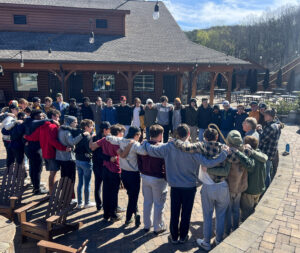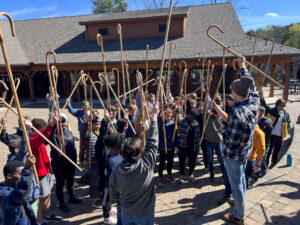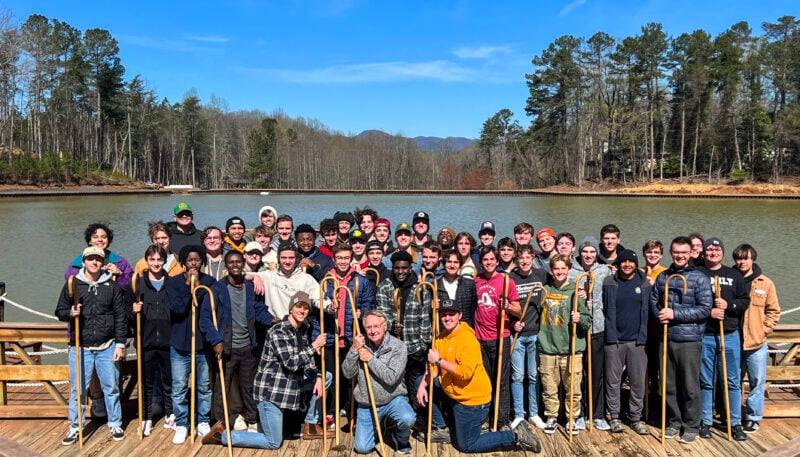On the Thursday before the Fellows’ spring break, some forty young guys crammed onto a bus and pulled off Impact 360’s campus heading who-knows-where for the Manhood Retreat. What ensued was a potent series of challenges which, in two-and-a-half days’ time, would call us to a solemn and stirring decision to determine the course of our lives. What happened in between? I—Daniel, a Fellow—will tell you what I learned.
I learned that biblical manhood is Christlikeness. We arrived at a beautiful camp by the name of Woodlands, settled into our rooms for the weekend, and filed into a conference room to hear from our very own Adam Story. The instruction began with a creed of sorts, one with which we were already familiar: biblical men are active—not passive—accept responsibility and lead courageously. Adam went on to describe the biblical man as one who obeys the Lord, who loves and protects His people—particularly His women—and embraces His Word, becoming whole in Christ and joining in His restoration. Indeed, this is a clear picture of what manhood ought to look like. But missing from it was the unifying factor, the one and only answer to the question: how do I transform into such a man? 
But Adam was not finished. As he concluded, he left us with this thought: becoming a biblical man means experiencing spiritual formation into Christlikeness. It’s nothing more, nothing less. And to me, that was the most profound idea of all. Galatians 3:28 says that there is now neither male nor female, for all are one in Christ Jesus. Does this mean that men have no unique responsibility? Of course not. It means that a man’s identity is not in his manhood, any more than in his ethnicity, status, or accomplishments. It is in Christ. And as such, our goal ought not be obedience, love, or protection so that we make ourselves into biblical men on our own; rather we must surrender our manhood, and everything else, to Christ, trusting that His way is better and become like Him—the ultimate biblical Man.
What does this mean for us? Death to self. Throughout the duration of our stay, we talked about the responsibilities which befall us, the wounds we must overcome, and the sacrifices which we are called to make for those around us. We learned about those areas of manhood we excel at, and others in which we are found wanting. To become biblical men, it soon became clear, we would have to pick up our crosses and die to self. 
On the final day, before we departed, each one of those guys—no, men—stepped up and made that decision, receiving a shepherd’s crook to commemorate the identity we had adopted as image-bearers of the Shepherd. The Gospel calls us into activeness, responsibility, and courageous leadership in spite of ourselves, because that is the will and the way of God. It is therefore our faith in Him, shouldering His easy yoke and letting die those vanities which would have us stand up on our own, which sees us resurrected as biblical men—yet not I, but through Christ in me.
Daniel Bosch
